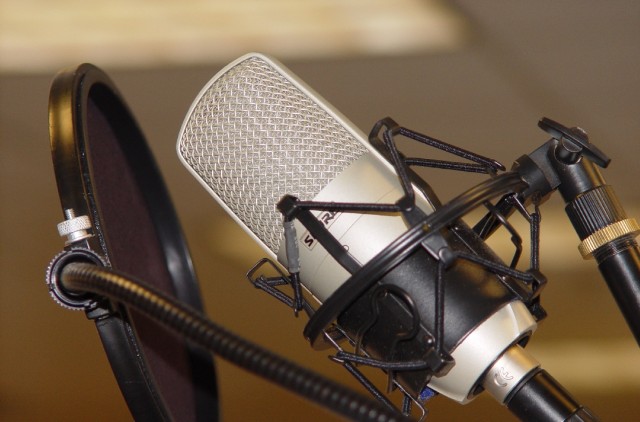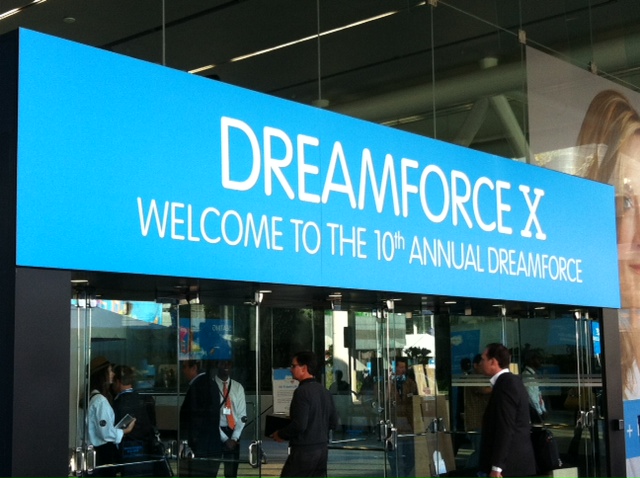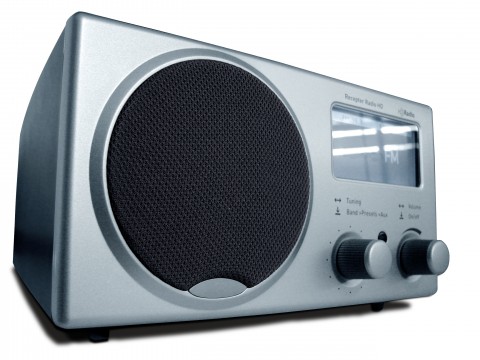Over the last two years Salesforce.com have been one of the more aggressive buyers of cloud computing and social media startups with acquistions of companies like Rypple, Desk.com, Buddy Media and Radian6.
Today, ahead of the company’s annual Dreamforce conference in San Francisco, Salesforce.com announced a revamped product range that brings together the social media and big data tools from these acquisitions along with some in house innovations.
Salesforce expect nearly a hundred million enterprise tablet computer users and smartphones by 2016, so like all web based services, they have to make their platform available as an app. Salesforce’s new Touch iOS App allows users to use Salesforce.com as an app on the iPhone.
Despite Mark Zuckerburg’s disavowal of HTML5 last week, Salesforce remains committed to the standard despite developing an app for the iPhone.
“Initially we’re rolling out Touch in a way we’ve made sure works the way people want it to work on an iPad,” Peter Coffee, Vice President of Platform Research at Salesforce.com, says.
“We are reiterating our commitment to HTML 5 as a device and platform neutral cluster of standards.
“As HTML5 begins to clearly coalesce we’re making a major commitment to that and we’re going to lead the way while the opposition is still trying to work on one browser.”
Salesforce continues their focus on social media with their Chatter service becoming a key part of their Force.com cloud applications platform. Chatter itself is being extended with a new feature to enable companies to create their own branded communities.
That social integration continues as the company rolls out Social Key, an application which, as Andy MacMillan, senior vice president and general manager of Data.com says “will empower companies to derive value from social data for the first time.”
If Social Key does achieve a real measure of value from retweets and Facebook posts it may well mean many social media experts will have to return to multi-level marketing or real estate sales. This in itself is not a bad thing.
The new Salescloud platform uses Chatter to build business intelligence on customers, bringing data across a business to help sales teams target their efforts more effectively.
While sales is by definition the focus of Salesforce they are also launching a similar Chatter service for support teams. This compliments the acquisition of Assist.ly at the beginning of the year.
Marketing too is being targeted by Salesforce with the launch of Marketing Cloud that combines the Buddy Media Facebook marketing service and the Radian6 social media monitoring platform.
While already the leader in business cloud applications, Salesforce are making a strong bid to dominate the sector in a way that Microsoft did in the desktop computer industry twenty years ago.
Browsing through the 400 partner stands at the Dreamforce Expo shows Cloudforce are building a deep ecosystem around their products that will make it hard for competitors to break into the space.
Whether Salesforce achieve this dominance remains to be seen, but they are certainly giving a new set of tools for businesses to understand their customers.
Pricing and Availability
Salesforce Touch is generally available today on iOS devices, and included in all Salesforce editions.
Sales Cloud Partner Communities is currently scheduled to be available in limited pilot in Fall 2012.
Sales Cloud Partner Communities is currently scheduled to be generally available the second half of 2013.
Data.com Social Key is currently scheduled to be generally available the second half of 2013.
Pricing of Sales Cloud Partner Communities and Data.com Social Key will be announced at general availability.
Similar posts:


